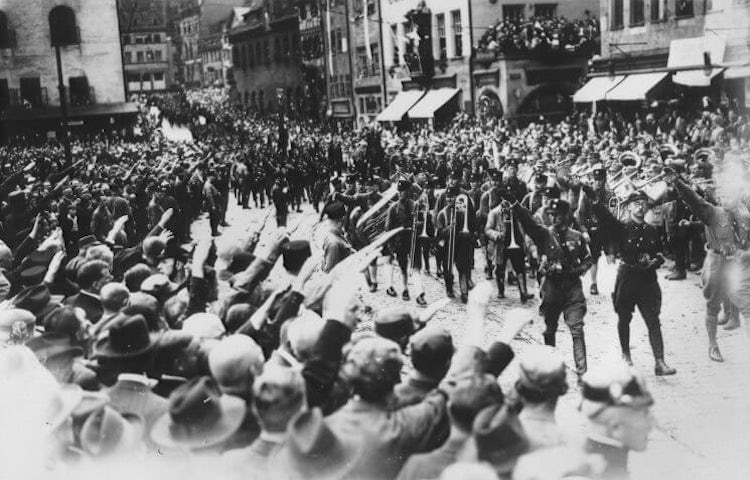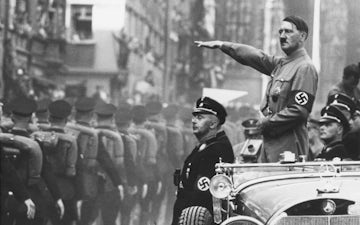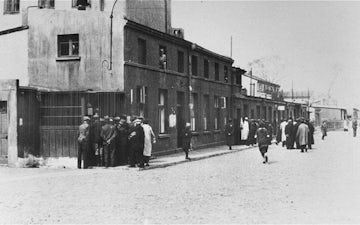
The National Socialist German Workers Party (NSDAP) was an extreme right wing German political party founded in 1920 after Germany’s defeat in World War I. It was led by Adolf Hitler from 1921 to 1945.
The party promised that it would defend German cultural values against Jewish-cosmopolitan influences, rescind the harsh provisions of the Treaty of Versailles which demilitarized and imposed huge economic burdens on Germany after World War I, protect Germany against the perceived threat of Communism, and restore Germany to its pre-World War I greatness in the international arena.
After the onset of the Great Depression in 1929-1930, the Nazi Party rose from 2.6 percent in the 1928 German parliamentary elections to becoming the second largest political party in the country following the September 1930 elections with 18.3 percent of the vote. In the July 1932 elections it was the largest party with 37.3 percent of the vote.
After Hitler was appointed Chancellor of Germany in January 1933, the Nazi Party became the dominant, and soon the only, political party and movement in Germany. Since 1949, the Nazi Party has been outlawed in Germany.
Key Terms:
Treaty of Versailles: the treaty ending WW1 signed in the Hall of Mirrors at Versailles in 1919 between the Allied nations and defeated Germany. The treaty inflicted foreign and domestic territorial losses and economic penalties on Germany, and contained an explicit admission of responsibility by Germany for the outbreak of war in 1914. The treaty was widely criticised at the time both in Germany and elsewhere.
Great Depression: on 29 October 1929, the American stock market collapsed in value. In the 1920s, American governments had relied upon private investment to secure loans to ensure that Germany met her obligations under the Treaty of Versailles to make reparations payments. With the collapse of those private investors, America was forced to recall loans made to Germany, Britain and France, leading to the collapse of those economies. The political impact of the resulting unemployment and social hardship was political instability. In Germany, the economic collapse was central to the rise of Hitler and the Nazis. In Britain and France, the resulting focus on domestic affairs was a major reason why both countries failed to check the aggressive foreign policy of the Axis powers in the 1930s.




